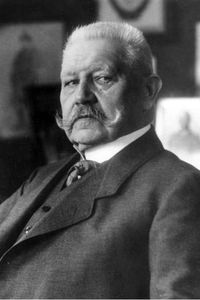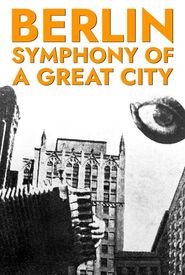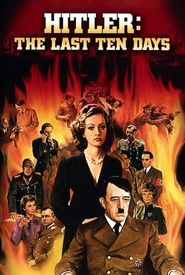Paul Ludwig von Hindenburg, a distinguished German general and statesman of considerable repute, commanded the Imperial German Army throughout the tumultuous and conflict-ridden period of World War I, subsequently ascending to the esteemed and prestigious position of President of Germany from 1925 until his passing in 1934.
Throughout his tenure as President, Hindenburg played a pivotal and influential role in the Nazi Party's ascension to power in January 1933, a development that was precipitated by the mounting pressure and persuasion from his trusted advisors, who ultimately persuaded him to appoint Adolf Hitler as Chancellor of Germany, a decision that would have far-reaching and profound consequences for the future of Germany and the world at large.





















